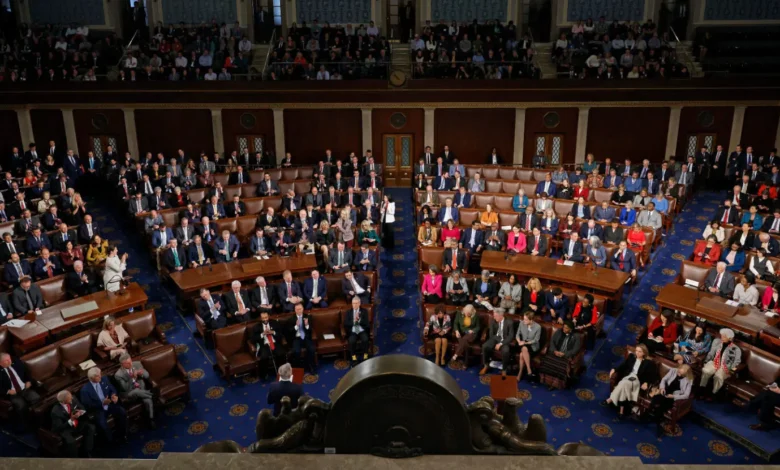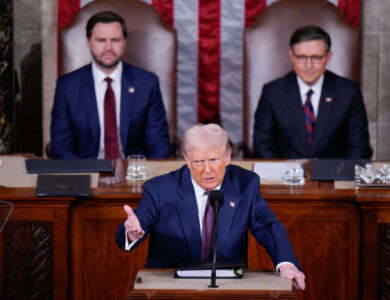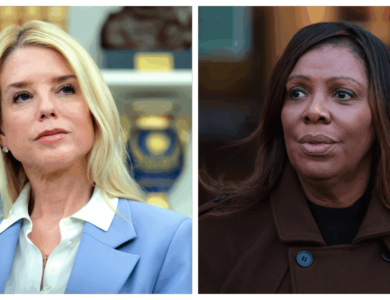GOP ‘RINO’ Senator Thinking About Switching Parties

Sen. Lisa Murkowski (R-Alaska) said she has “considered” joining the Senate Democratic caucus but expressed doubts about the move, citing significant policy differences and skepticism that Democrats are significantly better than Republicans.
Murkowski, seen as a key vote on the Republican legislative package expected on the Senate floor this week, has voiced frustration with the two-party system. In a recent podcast interview, she said she may explore becoming an independent while continuing to align with Democrats on certain major issues.
“I would be not being honest with you if I said I’ve never been asked … ‘Why don’t you switch?’ Or people have said, ‘You should switch,’” Murkowski said in a recent interview with Semafor ahead of the release of her new book, “Far from Home: An Alaskan Senator Faces the Extreme Climate of Washington, D.C.”
Murkowski acknowledged she has thought about switching to the Democratic Party but gave no indication she is close to making such a move, which would carry significant implications for the balance of power in the Senate.
“Have I considered it? Yes, because I’ve been asked the question,” she said.
Murkowski admitted that there are times when she feels uncomfortable within the Republican Party.
“Do I feel that within my Republican conference, I always feel like I’m right here in my political home? No. There’s some directions and policies that I disagree with,” she told the outlet, but went on to say that her political outlook generally aligns “more closely” with the GOP.
Murkowski also pointed to challenges within the Democratic Party, noting its internal divisions following former Vice President Kamala Harris’s loss in all seven battleground states to President Trump in the 2024 election and Democrats’ subsequent loss of control in the Senate.
“As challenged as I think we may be on the Republican side, I don’t see Democrats being much better,” she told Galen Druke, host of the “GD Politics” podcast.
“They’ve got not only their own share of problems but, quite honestly, they’ve got some policies that I just inherently disagree with,” she said.
WATCH:
Republican Sen. Lisa Murkowski says she might switch parties.pic.twitter.com/AyNEiwvH4v
— Defiant L’s (@DefiantLs) September 27, 2025
One of Murkowski’s longstanding policy disputes with Democrats has centered on expanding oil and gas development in Alaska. She secured a significant victory on that issue in 2017, when Congress approved legislation authorizing oil lease sales in the Arctic National Wildlife Refuge, a measure that passed despite strong Democratic opposition.
Druke asked Murkowski whether she would consider becoming an independent who caucuses with Senate Democrats if doing so shifted control of the chamber to Democratic Leader Chuck Schumer (D-N.Y.) and came with assurances that her top policy priorities for Alaska would be advanced.
“It’s an interesting hypothetical,” she said, adding that the right way to look at it is “if this would help Alaskans.” She said: “I have to figure how I can be most effective for the people that I serve.”
Murkowski cautioned that she could not change her political identity simply for convenience, recalling that some supporters urged her to run as a Libertarian in 2010 after she lost the Republican primary. She instead won that year’s general election as a write-in candidate, The Hill reported.
When pressed during the podcast about the possibility of caucusing with Democrats as an independent, Murkowski acknowledged the option but stopped short of committing.
When asked if she could envision a scenario where she became an independent or unaligned if it benefited Alaska, Murkowski responded, “There may be that possibility.” She pointed to the Alaska Legislature, which is controlled by a bipartisan coalition, as an example of that approach.
“This is one of things I think is good and healthy for us,” she said. “We’ve kind of embraced a governing style that says if you’ve got good ideas … it doesn’t make any difference if you’re a Republican or a Democrat, we can govern together for the good of the state.”





